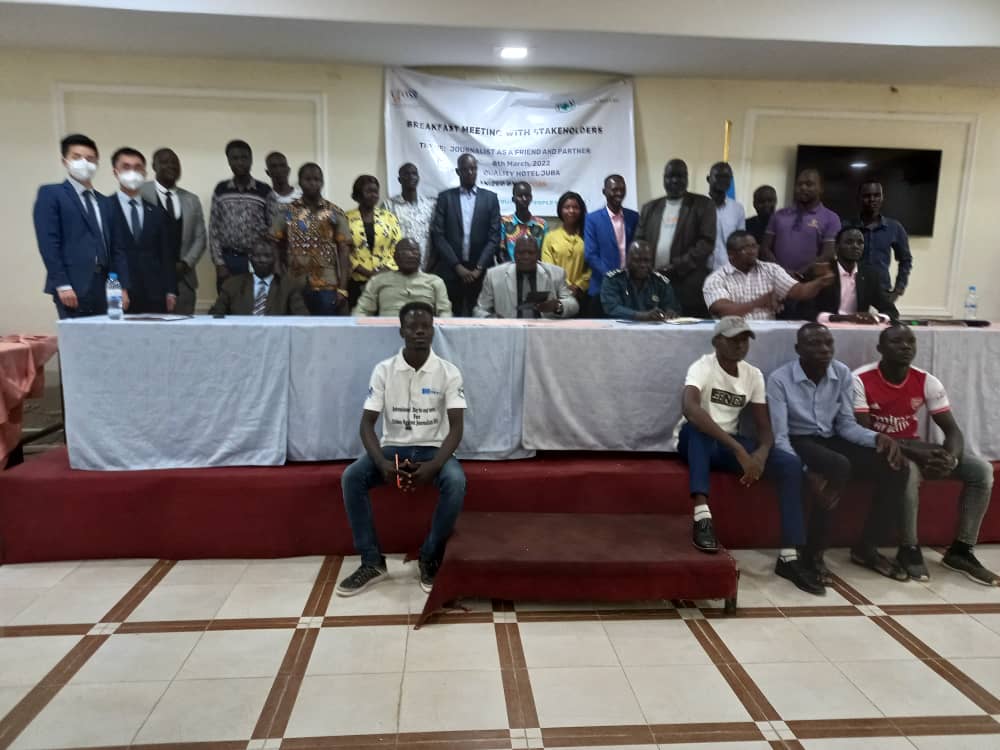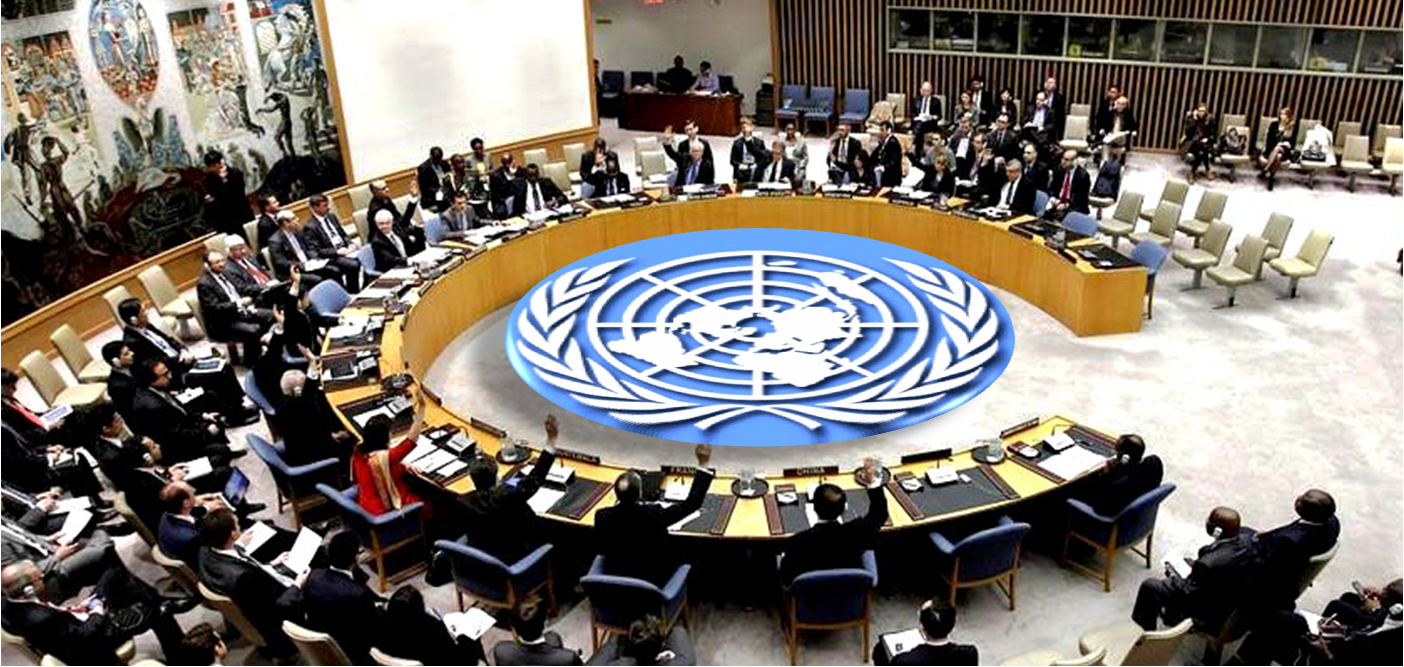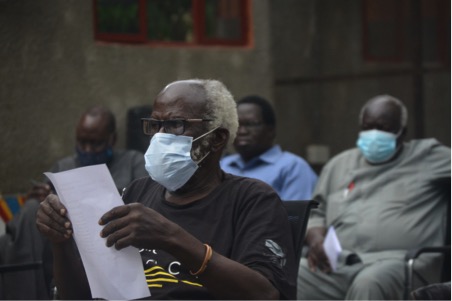
South Sudanese journalists demand free space to operate

By Kidega Livingstone
Journalists in South Sudan have hyped up the call, demanding a space to disseminate freely information in a bid to fully participate in spurring the country towards democracy.
The climax of a democratic process is billed for next year when the country is expected to hold elections at the end of the transitional period instituted by a 2018 peace agreement.
During a breakfast meeting organised by the Union of Journalists of South Sudan, with stakeholders including government officials and international diplomats in the capital Juba, the journalists staked their claim, demanding freedom of expression to ensure proper dissemination and prepare the country for elections, among other duties.
UJOSS President Oyet Patrick Charles said that to ensure a fair exercise of democracy, journalists and activists should be free to inform the public and express their opinions and views for a successful peace accord.
“It’s everybody’s responsibility to promote freedom of expression,” Charles said at the event.
The Deputy Ambassador of France to South Sudan, Xavier Verjus Richard, said that freedom of expression and the work of independent media in the country would result in the development of a peaceful South Sudan.
“Journalists and members of civil society should express themselves freely so that people can get informed,” Verjus said.
For his part, a representative from the Norwegian Embassy, Jouss Huss Erick, said that journalists are the friends of society and the government because they provide accurate information on what is going on in a particular country in the world.
“Journalists play a vital role in nation building so that you can have a successful election and they inform the communities about what the government is doing,” Erick said, noting that “Without journalists, you cannot have access to information.”
“Now that South Sudan is approaching an election and there is a constitutional process, journalists need to be free to do their jobs,” he added.
Similarly, the Deputy Police Spokesperson, Brig. James Dak Karlo, said there is need for the country to uphold the work of journalists.
“We are going to an election and we are about to graduate our forces at the cantonment sites, so we need to give this information to the communities so that they can know what is taking place,” Karlo said.
According to Sapana Abuyi, the Director General of the Media Authority, analyses suggests that there is a more conducive environment for journalists than in previous years of conflict.




































